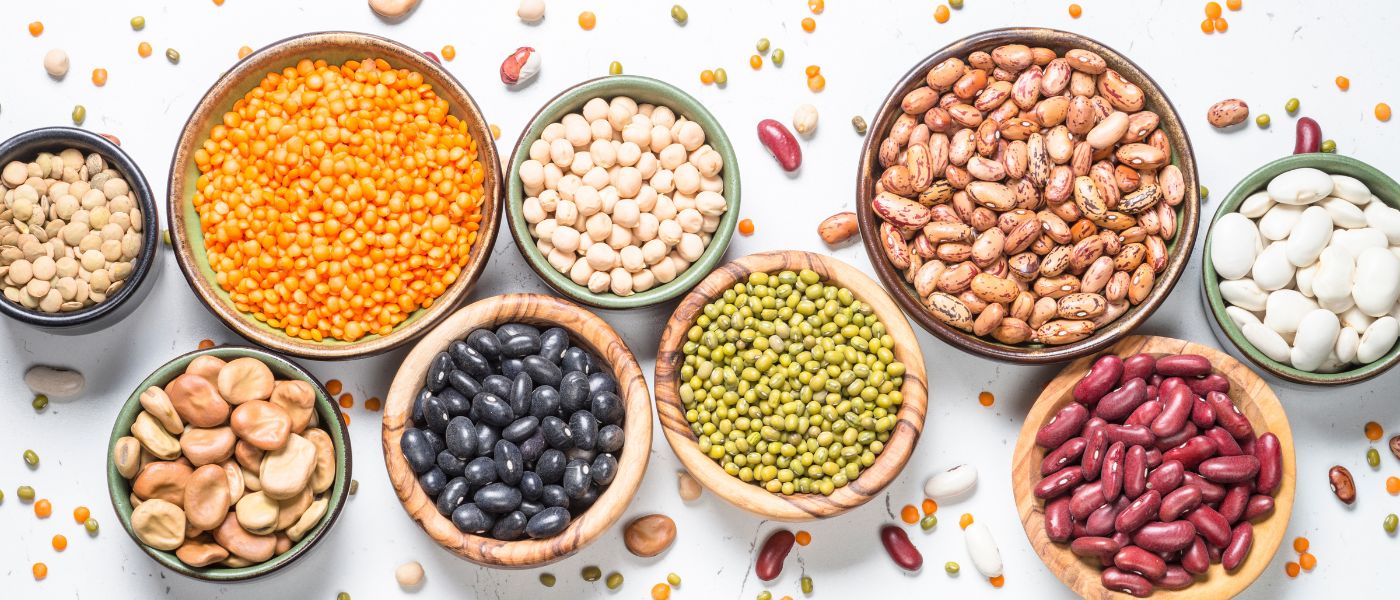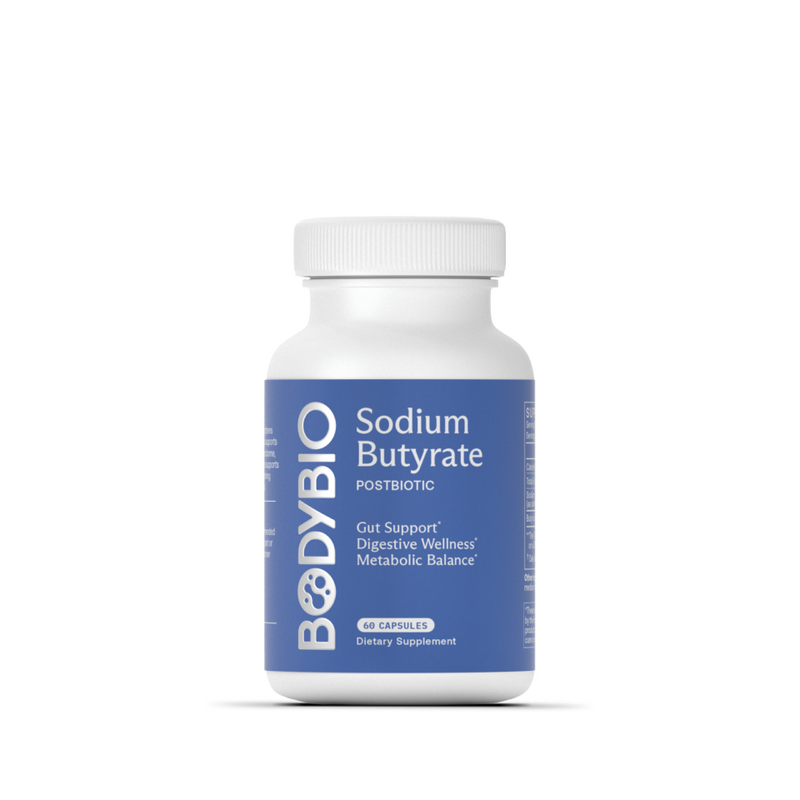What Are Lectins? Debunking the Internet’s Favorite Anti-Nutrient
Authors:

Dr. Thomas Wnorowski
PhD, CNCC Research Director, BodyBio & Biomedical Nutritionist
Key Takeaways:
Key Points:
- Lectins are proteins found in beans, legumes, and grains. They’ve recently made waves in the wellness community for potentially negative side effects, but there’s not much science to support this claim.
- The cooking process removes lectins from beans and legumes almost entirely. So, if you’re worried about lectin content in your food, just make sure it’s well-cooked.
- Lectins are also being studied for their anti-tumor properties and may be a valuable asset to cancer treatment.
Whenever a whole category of foods is said to be “bad,” we have to ask questions.
The truth is, the science surrounding food hasn’t always been correct.
Just a few decades ago, margarine was considered a healthy food.
And processed cereals and fortified grains were the foundation of the food pyramid.
To claim that we know everything there is to know about good and bad food is a bold statement. The best we can do to support a healthy diet is listen to our intuition and consume whole and unprocessed foods that have been trusted by our ancestors for centuries.
… That brings us to lectins.
These are plant proteins found in beans and legumes. Recently, they’ve raised concerns in the wellness community due to some preliminary science. There are many health professionals who claim that lectins should be avoided at all costs.
But is this really true?
Let’s dive into this unique plant protein and uncover the truth about lectins.
Table of Contents:
- Are Lectins Bad for You?
- How to Remove Lectins From Your Diet
- What Foods Have Lectins?
- Should You Banish Legumes From Your Diet?
Are Lectins Bad for You?
The answer to this question isn’t a simple yes or no. It’s more nuanced and has a lot to do with your genetics and how the legumes you’re eating are prepared.
Reasons to Avoid or Limit Lectins
Lectins aren’t necessarily bad for you. But if you have a sensitive gut or autoimmune disorder, you may want to limit them. Here’s why:
- They Can Be Difficult for Your Body to Break Down. As with any protein, lectins take longer for your body to digest. They’re resistant to stomach acid and digestive enzymes. That said, lectins aren’t usually an issue unless you have a sensitive stomach or an autoimmune condition.
- They Could Be an Anti-Nutrient. “Anti-nutrients” are natural compounds that can interfere with the absorption of vitamins and minerals in the body. The science on lectin as an anti-nutrient is spotty (most of the studies are done on animals). We don’t have enough human clinical studies yet to know how lectins may impact human health.
- People with Autoimmune Disease May Need to Avoid Lectins. There are select cases where lectins should be avoided. For some autoimmune patients, they can trigger symptoms. But in general, the lectins found in cooked beans or legumes shouldn’t impact the majority.
- They Could Impact the Digestive Wall. Studies have shown that lectins found in kidney beans can poorly impact the digestive wall. This is technically true, but only when high levels of lectins are consumed. If kidney beans are cooked, they are much safer to eat.
There’s a lot of misinformation about lectins. The research is low-quality and was primarily done on animals. While it’s true that very high levels of lectins can have health consequences, we’re only exposed to those levels when we eat undercooked beans and grains.
The Good Side of Lectins
- Lectins Have Antioxidant Properties. Yep, these highly controversial plant proteins can actually support your cells by scavenging free radicals.
- They Could Slow Digestion and Lead to Improved Blood Sugar Regulation. Remember how we said lectins are difficult to break down? Because of this, they can slow the digestive process — keeping you full for longer and positively impacting blood sugar levels. In general, legumes and beans are considered a superfood for blood sugar regulation. Whether the lectins themselves are responsible for this quality is yet to be known.
- They May Have Anti-Tumor Properties. There are many different types of lectins. Some lectins are being studied for their anti-tumor properties. They’re actually being tested as an alternative therapy to cancer.
- Lectin Sensitivity May Be Something Else. It’s easy to blame lectins for gut dysbiosis. Beans and legumes in general are known to increase gas due to their high fiber content. But before you blame lectins, it’s important to look at the whole picture of your digestive health. Gluten, soy, and other common food triggers, as well as underlying gut infections, are a more likely cause of symptoms.
- Lectins are More Dangerous to “Transformed” Cells. Research shows that lectins are more dangerous to the human body when cells are already mutated (aka, a person is diagnosed with cancer).
Here’s the takeaway: just because one element of an otherwise healthy whole food has questionable findings doesn’t mean that food should be eliminated entirely. If legumes are causing obvious gut symptoms, then it may be helpful to remove them from your diet and work on healing the gut before adding them back in later. Otherwise, foods containing lectins can have a positive impact on the body overall.
Easy Ways to Remove Lectins From Your Food
Another misconception about lectins is that they’re always present in legumes. This isn’t true. You’ll find high levels of lectins in raw legumes, but not in cooked ones. If you’re concerned about lectins in food, here are some things you can do to dramatically reduce them, depending on your sensitivity level…
You’re Concerned About Lectins
Cook Your Legumes. Lectins are water-soluble, so they start dissolving during the cooking process. When we isolate a lectin and look at the science, it makes sense that it could have concerning effects on the body. But in practice, cooked legumes have almost no remaining lectins.
You’re Moderately Sensitive to Lectins
Try Canned Legumes. Canned and organic legumes low in sodium may have a lower lectin content. This is because they’re pre-cooked and then soaked in liquid until they’re ready to use.
You’re Sensitive to Lectins
Soak Your Legumes. This is an ancient practice that’s only recently been lost to modern convenience. By soaking your beans and lentils before cooking (for several hours up to a whole day), you can dramatically lower the lectin content. That’s not where the benefits of soaking beans stop, though. Soaked beans tend to be easier to digest with more bioavailable nutrients.
What Foods Have Lectins?
Remember, lectin content in foods isn’t usually a big deal. But if you are sensitive or just want to be aware of the lectins you’re consuming, here’s a guide on what foods have lectins:
- Kidney beans
- Chickpeas
- Black beans
- Soybeans
- Lentils
- Peas
- Peanuts
- Broccoli
- Potatoes
- Eggplant
- Wheatgerm
There’s No Good Reason to Banish Legumes From Your Diet (Most of the Time)
Just because lectins look scary on paper doesn’t mean they actually are in real life. The truth is, humans have been eating lectins for thousands of years without any negative side effects. Lentils and beans are staple foods in many cultures, and for a good reason. They contain powerful nutrients for blood sugar regulation, gut microbiome support, and immune-boosting properties.
Recent studies and discourse against lectins are missing the whole picture. And, without clinical trials or long-term observational research in humans, there’s no good reason to remove lectins from your diet (unless you have an autoimmune disease or known sensitivity).
Adamcová A, Laursen KH, Ballin NZ. Lectin activity in commonly consumed plant-based foods: calling for method harmonization and risk assessment. Foods. 2021;10(11):2796. https://doi.org/10.3390/foods10112796
Petroski, W., & Minich, D. M. (2020). Is there such a thing as “anti-nutrients”? A narrative review of perceived problematic plant compounds. Nutrients, 12(10), 2929. https://doi.org/10.3390/nu12102929
Vojdani, A., Afar, D., & Vojdani, E. (2020). Reaction of Lectin-Specific Antibody with Human Tissue: Possible Contributions to Autoimmunity. Journal of immunology research, 2020, 1438957. https://doi.org/10.1155/2020/1438957
Yau, T., Dan, X., Ng, C. C., & Ng, T. B. (2015). Lectins with potential for anti-cancer therapy. Molecules (Basel, Switzerland), 20(3), 3791–3810. https://doi.org/10.3390/molecules20033791




